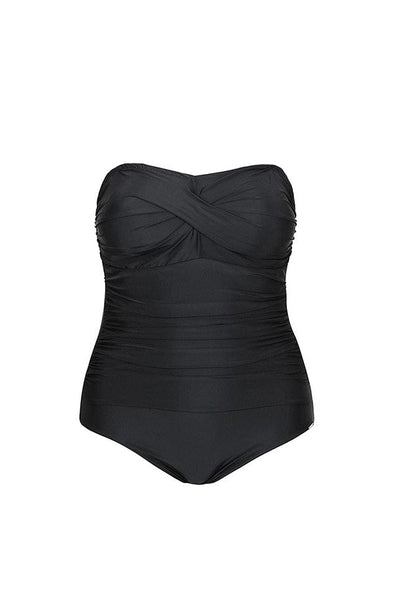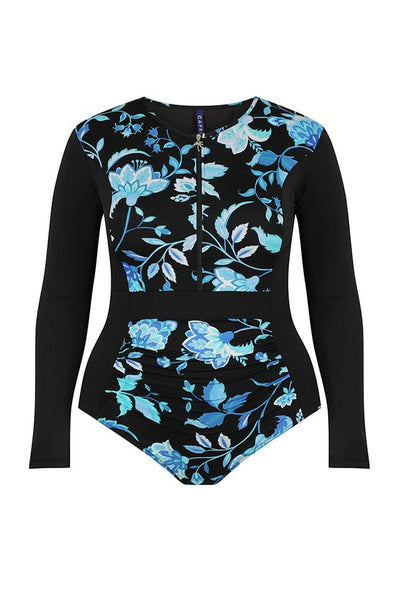Is Body Positivity for Everyone?
Here at Curvy Swimwear, we champion body positivity. Our inclusive swimwear collection allows women from sizes 10 to 30 to enjoy whatever activities they choose that involve wearing a swimsuit. We do our best to represent a variety of body shapes and sizes on our website and socials that reflect our customer base.
Considering our varied size range and customer base, we cut our samples in 3 different sizes and shoot them on a variety of models. The influencers we use cross generations, race, and size, and we endeavour to present a wide range of women enjoying our designs. We are the first Australian swimwear brand to feature a plus size model on billboards across the country.

We live for body diversity, acceptance, and positivity.
We also understand that it’s not easy to love or even like our bodies at times. Body positivity can take work and for many it is just not possible. This can occur for anyone, regardless of size. We see evidence of this with those experiencing eating disorders and body dysmorphia.
While we can accept that anyone can dislike their body (sometimes with tragic results), do we accept that anyone, regardless of size, is entitled to body positivity?
Our billboard model, April Helene-Horton is all about fat positivity and body acceptance
Who Started the Body Positive Movement?
To understand this better, we need to first know when and why the body positive movement began.
With its roots in the fat acceptance movement of the late 1960s, body positivity was part of a cause to end the culture of fat-shaming and discrimination against people based upon their size or body weight.
A second wave in the 1990s placed emphasis on providing safe spaces for people of all shapes and sizes to comfortably come together and exercise. The backlash against diet culture began with new evidence emerging of the dangers of dieting.
With the rise of social media came the current wave of the body positivity movement. Arguably the most embraced and visible wave of the body positive sentiment. Model Tess Holliday is credited with shining a light on larger bodies being represented in the media, particularly in the world of fashion.
Her advocacy around fat acceptance and body positivity has started an important conversation while changing the face of fashion with broader representation.

Our Curvy Confidence Ambassadors live the body positivity message, focusing on self love and acceptance
Fat Positive
Fat positivity is not just about feeling good about how you look. Fat positivity and fat acceptance is a social movement seeking to eliminate the social stigma of living in a larger body.
One of the most important applications of this is healthcare.
There is endless anecdotal evidence of larger people not receiving adequate healthcare because of their concerns being dismissed due to their weight.
It is assumed, even by some doctors, that all their health concerns are a result of carrying extra weight. In many cases this was untrue, with serious conditions going undiagnosed and mistreated.
Discrimination of larger people, or fatphobia, is also evident in employment, education, personal relationships, and the media. It’s not surprising that the body positivity movement emerged and continues to grow.

All shapes and sizes deserve to feel good in their bodies
Fatphobia and Thin Privilege
Fatphobia is the discrimination of larger bodies based on the assumption that they are living an unhealthy lifestyle. The term “thin privilege” is used to highlight this disparity shining a light on the acceptance of smaller bodies being the socially approved “correct” size.
Thin privilege highlights the social, financial, and practical benefits afforded to thin or smaller bodies. From easily finding their clothing size, fitting in public spaces effortlessly, and most importantly, having access to comprehensive healthcare.
Thin privilege is not often acknowledged by conventional sized women championing body positivity. Considering the origins of the body positivity and fat acceptance movements, we can understand how larger women might see this as a contentious issue.

Your health is not determined by your size
So, Is Body Positivity for Everyone?
We believe body positivity should be available to all shapes and sizes but acknowledge that the coexistence of fatphobia and thin privilege can create frustration and disheartened feelings in women experiencing discrimination due to their size.
Perhaps if conventional sized women acknowledged their thin privilege instead of just preaching body positivity we would see more inclusion, acceptance, and ultimately better treatment of larger women in all areas of society.
The fabulous Caitlin Robertson champions positive body image and acceptance
For more inspiration on real life body acceptance, read our article written by the fabulous Caitlin Robertson.




































Leave a comment